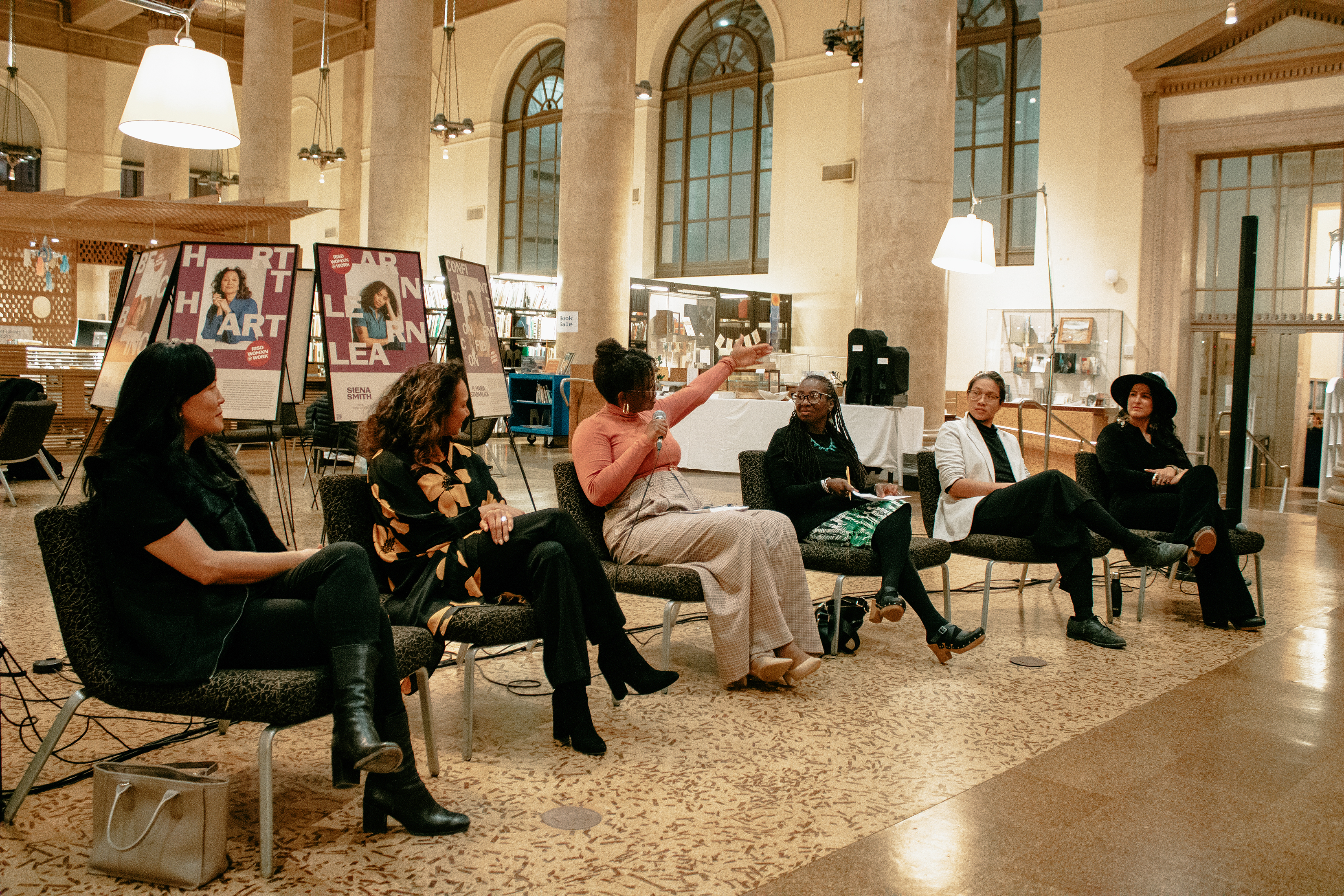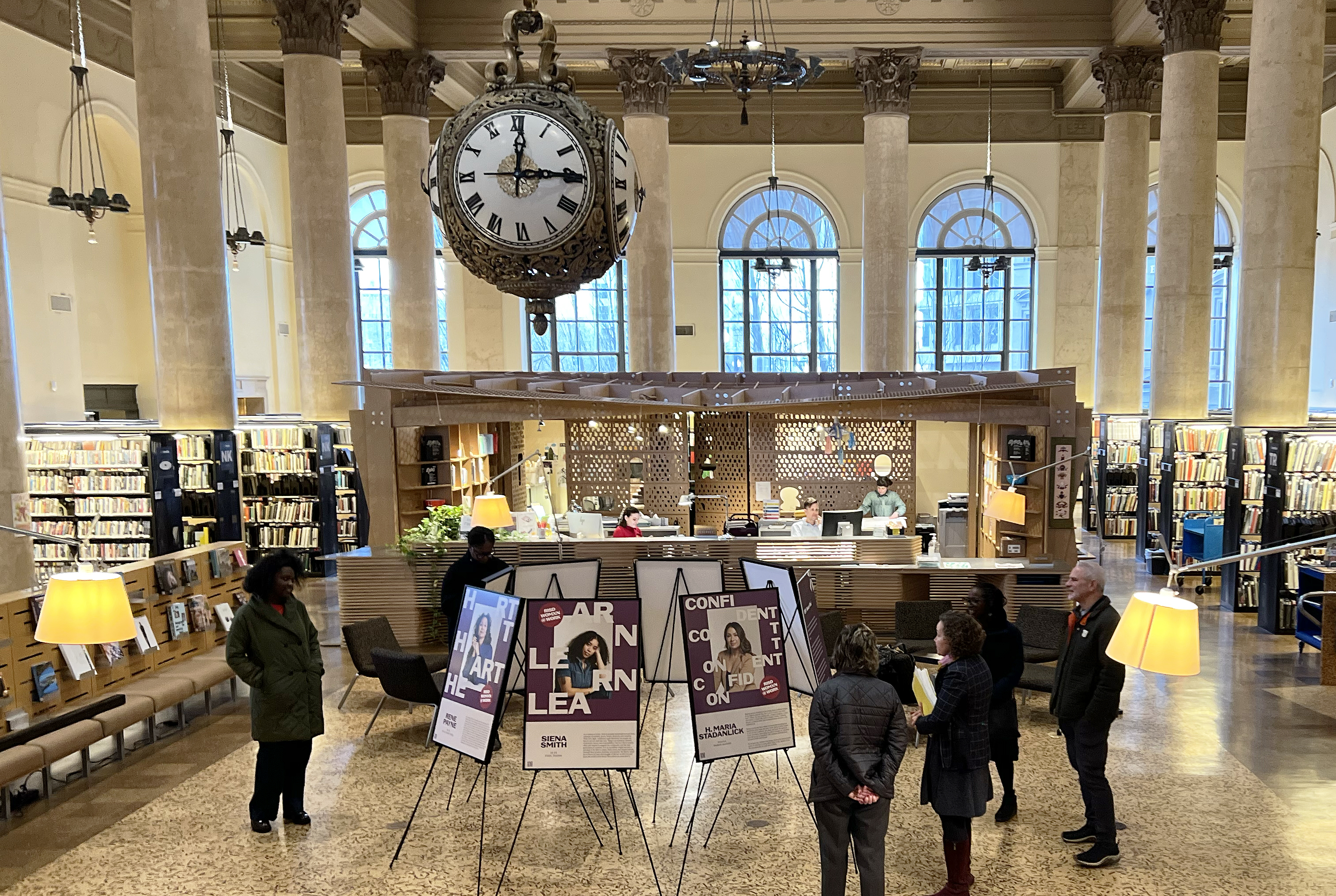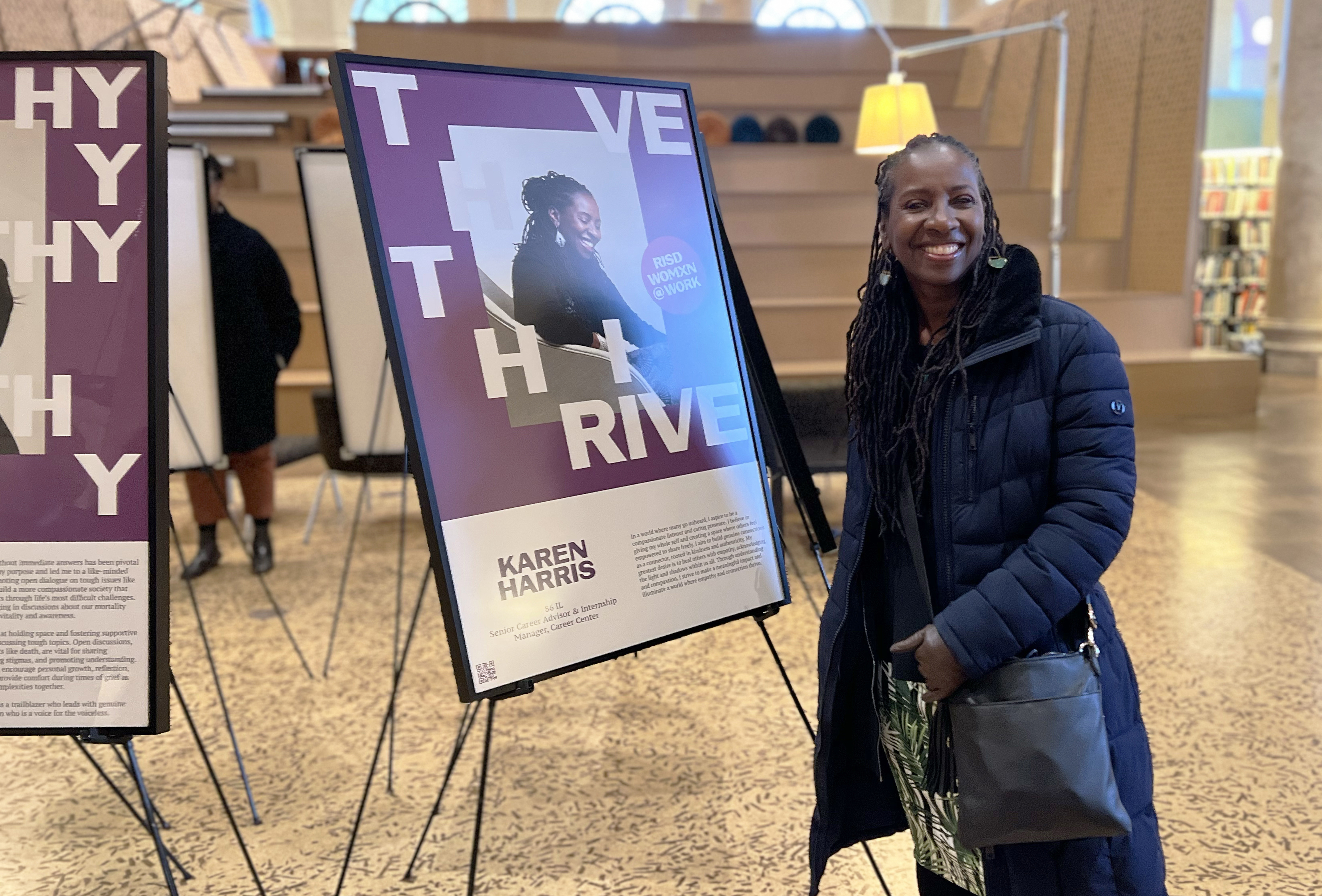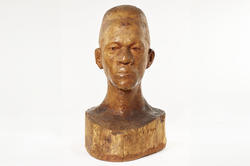Six speakers delivered compelling talks at the second annual student-led event.
Seven Womxn of RISD Honored via Inaugural Womxn @ Work Initiative

As the world celebrates Women’s History Month, the RISD community looks back with gratitude on the visionary women who founded the institution in 1877 and also honors the contributions of contemporary RISD womxn via a new initiative called Womxn @ Work. (Womxn is an intersectional term intended to acknowledge and include people who have traditionally been excluded from white feminist discourse: Black women, women of color, trans women and nonbinary people.)
Organized by Simone Tubman and Alyssa Roush in RISD’s Equity & Compliance office, the inaugural program spotlights seven diverse womxn nominated for the honor by their peers: grad student Myung Bender MADE 24, undergrad Pei-Yu Hung 24 ID and faculty and staff members Jay Davani CERT 09 CE, Karen Harris 86 IL, Rene Payne 83 GD, Siena Smith 18 TX and H. Maria Stadanlick.
Honorees participated in a candid group discussion about the meaning of womxnhood, a self-exploratory writing exercise and a professional photo shoot led by photographer Adam Mastoon. The group reunited for an inspiring panel discussion about the experience in the Fleet Library moderated by RISD Museum SEI Specialist Kajette Solomon.

“I see substantial change [at RISD] and also recognize that I am partly responsible for making that change.”
Davani described the opportunity to hear the stories of the other womxn in the group as “profound” and noted that she was able to “get to know them as human beings and not just coworkers.” Harris appreciated the opportunity to show up as her “whole self,” and Payne wondered aloud about how she might let her guard down safely in other spaces at RISD and in her personal life.
Each of the panelists offered a unique take on womxnhood, but they all attribute at least part of their identity to the womxn who came before them. “I’m learning so much from the great womxn around me,” Hung added. “They’re helping me figure out how to use my voice and allow myself to take up space.”
The conversation turned to the enormous expectations placed on womxn by themselves and others and the intense juggling act of contemporary life. Bender and Davani both commented on the unprecedented freedom to choose that many US-based womxn experience today. “I have the freedom to pursue what I want,” Bender noted, “but along with that comes the freedom—and the responsibility—to pull back and take time for myself, too.”


Davani, whose family immigrated to the US from Iran, does not take those freedoms for granted. “I feel gratitude on a daily basis. I’m grateful for hot showers, for being allowed to wear makeup and show my hair in public,” she said, removing her hat and shaking out her long black hair.
Harris and Payne have both reached a place in their lives where they’ve stopped pressuring themselves to achieve perfection. “I’ve learned to trust myself,” Harris explained, “to break out of those perfectionistic expectations.” And Bender pointed out that a lot of that intensity is specific to the East Coast and joked about the two “easygoing” years she spent in London, where she was surprised to learn that her colleagues actually took an hour for lunch every day and cleared their calendars entirely for the month of August.
Each of the panelists briefly shared their strategies for taking care of themselves emotionally and spiritually. Hung finds solace in cooking, and Bender recommends womxn-only yoga/surf retreats. For Harris, it’s a combination of jazz, wine and alone time in her basement painting studio. “My faith in God is my foundation,” Payne offered. “It opens up the door to creativity and sets things in order for me.”
“I’ve learned to trust myself, to break out of those perfectionistic expectations.”
Payne also reflected on the changes she’s witnessed at RISD since she was a student in the ’80s. “I never imagined back then that I’d see a Black womxn president at RISD in my lifetime,” she said. “I see substantial change and also recognize that I am partly responsible for making that change.”
“Womxn have been quietly paving the way for a long time,” Davani added. “We can be our own worst enemies, or we can choose to be stronger together.”
Read about the seven Womxn @ Work honorees and see their portraits in the online exhibition.
—Simone Solondz
March 26, 2024


